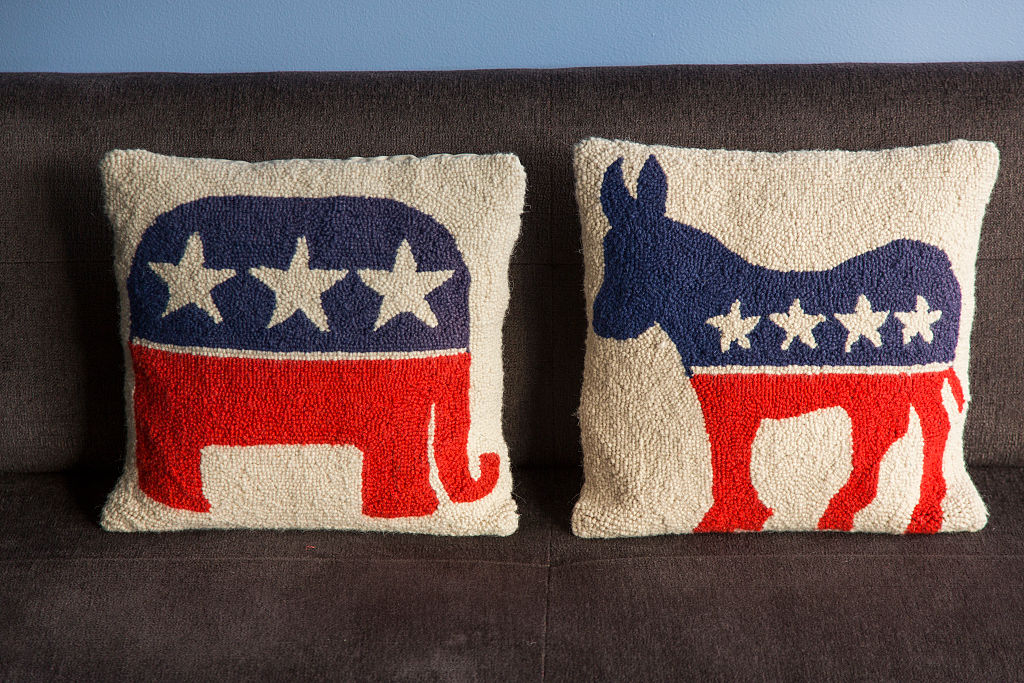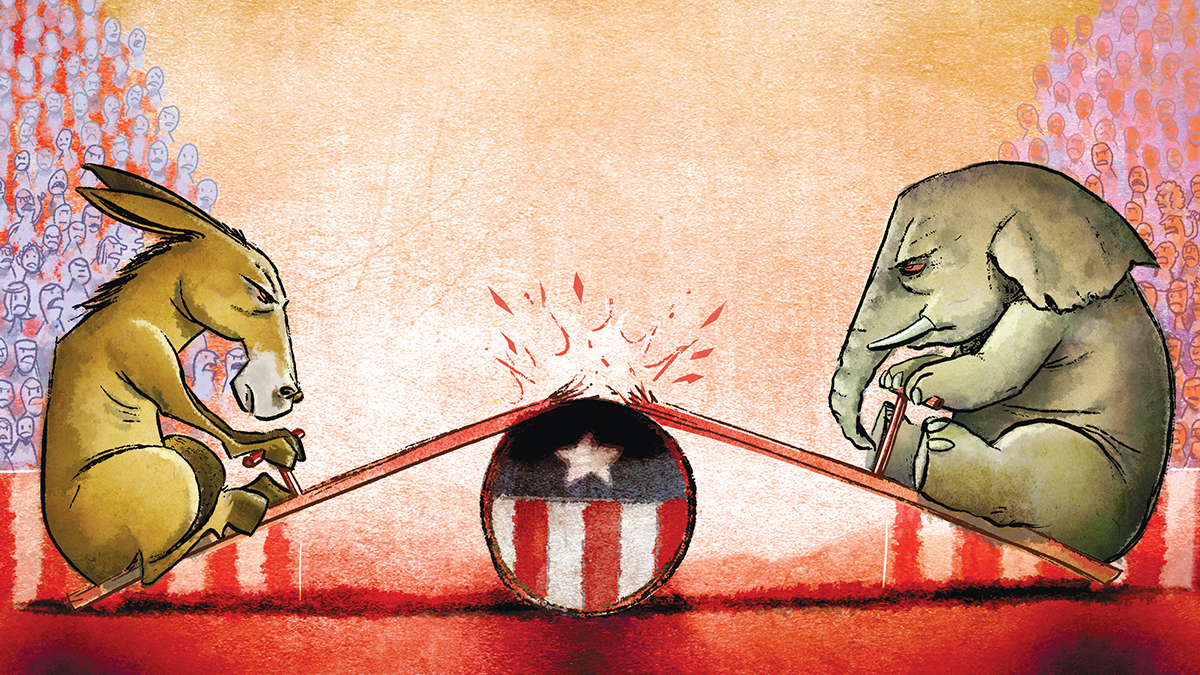Some Democrats in rural Pennsylvania are afraid to tell you they’re Democrats.
The party’s brand is so toxic in the small towns across northern Pennsylvania that some liberals have removed bumper stickers and yard signs, and refuse to acknowledge their party affiliation publicly. These Democrats are used to being outnumbered by the local Republican majority, but as their numbers continue to dwindle, the few that remain are feeling increasingly isolated and unwelcome in their own communities.
“The hatred for Democrats is just unbelievable,” said Tim Holohan, an accountant based in rural McKean County who recently encouraged his daughter to get rid of a pro-Joe Biden bumper sticker. “I feel like we’re on the run.”
The climate across rural Pennsylvania is symptomatic of a larger political problem threatening the Democratic Party ahead of the 2022 midterm elections. Beyond losing votes in virtually every election since 2008, Democrats have been effectively ostracized from many parts of rural America, leaving party leaders with few options to reverse a cultural trend that is redefining the nation's political landscape.
Get top local stories in Philly delivered to you every morning. >Sign up for NBC Philadelphia's News Headlines newsletter.
The shifting climate helped Republicans limit Democratic gains in 2020 — the GOP actually gained House seats despite former President Donald Trump's loss — and a year later, surging Republican rural support enabled Republicans to claim the Virginia governorship. A small but vocal group of party officials now fears the same trends will undermine Democratic candidates in Ohio, Wisconsin, Georgia, North Carolina and Pennsylvania, states that will help decide the Senate majority in November, and the White House two years after that.
Meanwhile, the Democratic Party continues to devote the vast majority of its energy, messaging and resources to voters in more populated urban and suburban areas.
In Pennsylvania, Lt. Gov. John Fetterman, a leading candidate in the state's high-stakes Senate contest, insists his party can no longer afford to ignore rural voters. The former small-town mayor drove his black Dodge Ram pickup truck across five rural counties last weekend to face voters who almost never see statewide Democratic candidates.
Photos: ‘The Brand Is So Toxic': Rural Pa. Has Become Hostile Environment for Democrats
Fetterman, wearing his signature hooded sweatshirt and gym shorts despite the freezing temperatures, described himself as a champion for “the forgotten, the marginalized and the left-behind places” as he addressed roughly 100 people inside a bingo hall in McKean County, a place Trump carried with 72% of the vote in 2020.
“These are the kind of places that matter just as much as any other place,” Fetterman said as the crowd cheered.
The Democratic Party’s struggle in rural America has been building for years. And it's getting worse.
Barack Obama won 875 counties nationwide in his overwhelming 2008 victory. Twelve years later, Biden won only 527. The vast majority of those losses — 260 of the 348 counties — took place in rural counties, according to data compiled by The Associated Press.
Biden overcame rural losses to beat Trump in 2020 because of gains in more populous Democratic counties. Perhaps because of his victory, some Democratic officials worry that party leaders do not appreciate the severity of the threat.
Decision 2022
Democratic Rep. Jim Cooper of Tennessee, who recently announced he would not seek reelection to Congress this fall, warns that the party is facing extinction in small-town America.
“It’s hard to sink lower than we are right now. You're almost automatically a pariah in rural areas if you have a D after your name," Cooper told The Associated Press.
Even if Democrats continue to eke out victories by piling up urban and suburban votes, former Sen. Heidi Heitkamp of North Dakota fears her party will have “unstable majorities” if they cannot stop the bleeding in rural areas.
“Democrats have the House, they have the Senate, the presidency, but it’s an unstable majority. By that, I mean, the narrowest kind, making it difficult to advance ideas and build coalitions,” said Heitkamp, who now heads the One Country Project, which is focused on engaging rural voters.
To help win back rural voters, the Democratic National Committee has tapped Kylie Oversen, a former North Dakota state legislator, to work with rural organizers and state party rural caucuses as the chair of the national committee's rural council. The DNC also says it's sharing resources with people on the ground in rural areas to help improve training, recruiting and organizing.
So far, at least, those resources are not making life any easier for Democrats in northwestern Pennsylvania.
At one of Fetterman's weekend stops in rural Clarion, a group of voters said they've been effectively ostracized by their community — and even family members, in some cases — for being Democrats. One woman brings her political signs inside at night so they aren't vandalized or stolen.
“You have to be careful around here,” said Barbara Speer, 68, a retired sixth grade teacher.
Nearby, Michelle's Cafe on Clarion's main street is one of the few gathering points for local Democrats. A sign on the door proclaims support for Black Lives Matter, LGBTQ rights and other progressive priorities.
But the cafe owner, 33-year-old Kaitlyn Nevel, isn't comfortable sharing her political affiliation when asked.
“I would rather not say, just because it’s a small town,” she said.
One patron, 22-year-old college student Eugenia Barboza, said the cafe is one of the few places in town she feels safe as a Latina immigrant. Just down the road, she said, a caravan of Trump supporters met up to drive to the deadly protests in Washington on Jan. 6, 2021.
Barboza said she's grateful that Democrats like Fetterman are willing to come to rural areas, but she isn't hopeful that it'll change much.
“It would take a lot more than just him,” she said. "It would take years and years and years.”




